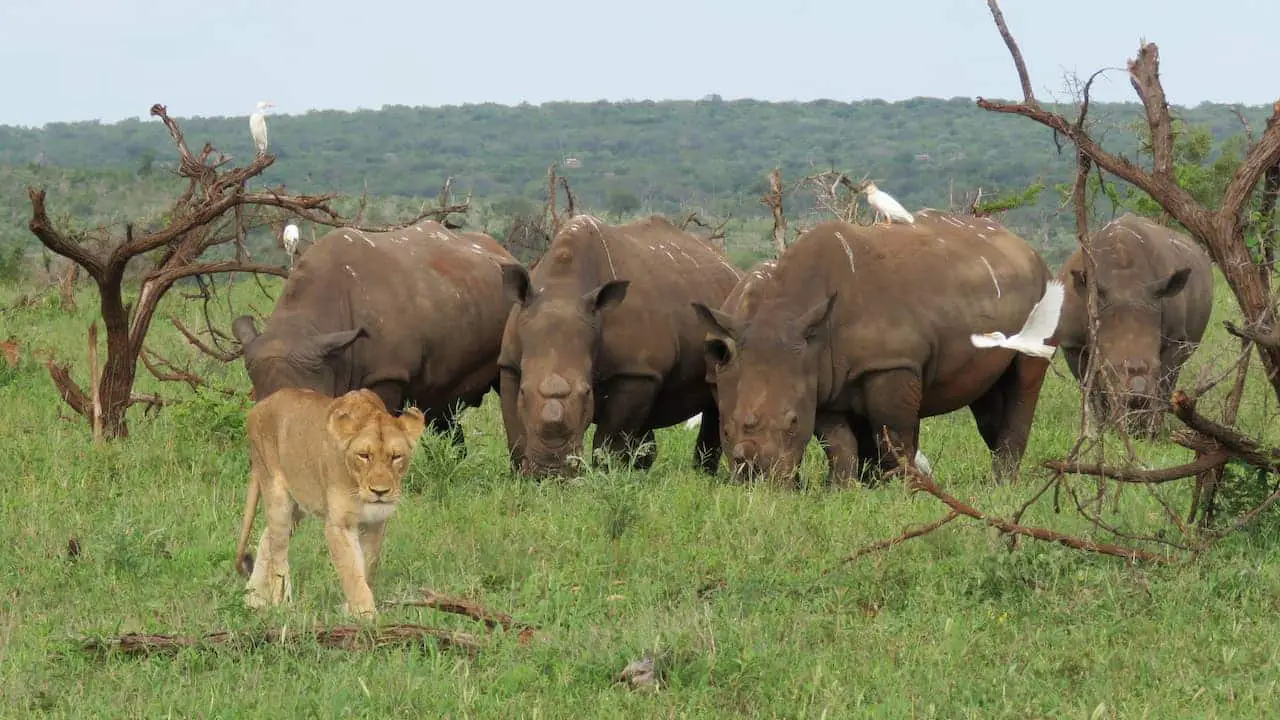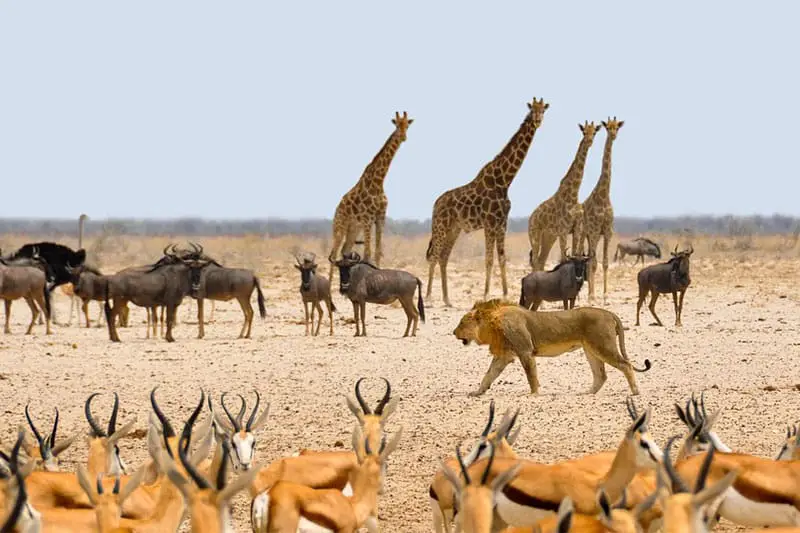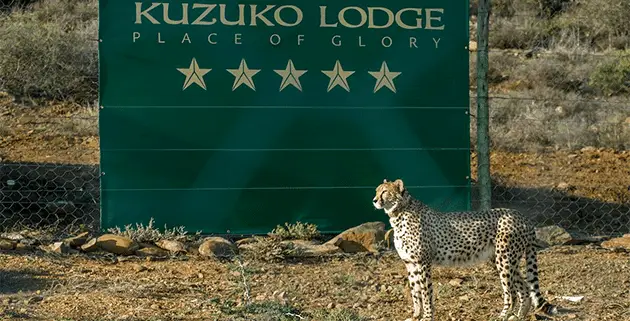Will a highway destroy Tanzania’s Serengeti?
Award winning journalist, Don George spoke with Dave Blanton, Executive Director and co-founder of Serengeti Watch, about the current status of the proposed highway and what will happen to the Serengeti and Tanzania’s tourism industry if the plan proceeds.
Background
In 2010, the government of Tanzania announced a plan to construct a paved commercial highway across the Serengeti, bisecting the route of the famed Serengeti migration.
Scientists and conservationists warned that, if constructed, the highway would cause the migration to collapse and forever alter the Serengeti-Mara ecosystem. Worldwide condemnation of the plan was swift and immediate. Leading the charge was Serengeti Watch, which sprang up in the wake of the announcement to help rally opposition to the plan through Facebook and other social media platforms. With over 7,000 members and nearly 50,000 Facebook followers, Serengeti Watch continues to mobilize opposition to the highway and other projects that threaten East Africa’s famed natural treasures.
What is the current consensus on whether or not the highway will be built?
The government of Tanzania says that it has no current plans to build a commercial highway across the Serengeti. It does say, however, that paved roads will be built on either side up to the margins of the park. This, of course, leaves the way open for connecting the two sections with a road through the park in the future. Unfortunately, there are political and commercial pressures to do just this. Local politicians and international interests all have a future stake in this. So is the battle over? No, not by a long shot.
What do you believe will happen to the Serengeti if the highway is constructed and why?
Serengeti Watch conducted a survey among 302 scientists from 32 countries that was conclusive – a commercial highway would be the end of the great migration as we know it. The ecosystem would become fragmented in a critical, narrow path of the migration. Added to this would be the development of trade centres, towns, and large-scale agriculture that inevitably follow roads. Projections by the government’s own impact study were for 800 vehicles a day by 2015! Fencing would be needed along the route. Further impact would result from introduced species of plants and organized poaching. A scientific study is actually not required to determine that such a highway would be a disaster.
What do you believe will be the effects on the tourism industry and the people of Tanzania if the highway is constructed?
In order to convince authorities that such a highway is not in the best interests of the country and its people, Serengeti Watch did a petition and survey of international tour companies. There was wide agreement that Tanzania’s tourism industry would suffer serious decline. This would mean a loss of tens of thousands of jobs and millions of dollars. Over 70% of respondents said that should construction start, they believe there would be a widespread call for a tourism boycott. You can read the full study at: http://www.savetheserengeti.org/news/highway-news/economic-impact-statement/#axzz2EqQtZTpr.
Why would the government of Tanzania risk destroying one of the planet’s greatest ecotourism resources for the sake of a road?
This is the great question we asked when hearing news of the highway. It has since become apparent that Tanzania’s longstanding ethic and practice of conservation is rapidly fading. There are also threats to the Selous Reserve, home of one of Africa’s great remaining elephant populations. Over ten thousand are being poached each year. Lake Natron, breeding ground for most of Africa’s Lesser Flamingos, is being targeted for soda ash mining. Other areas are under threat as well. There are strong geopolitical and population pressures operating, and there are some politicians bent on exploiting the country’s natural resources at any cost.
Some people will ask: Does the outside world have the right to tell Tanzanians that they can’t develop? As some have claimed, is this really a case of ‘people against animals’?
It is clearly not a case of animals vs. people, and it is not true that it’s the outside world telling Tanzanians what to do. As we have discovered, there is strong opposition to a Serengeti highway and other destructive development within Tanzania as well. The nephew of the country’s first president, Kevin Nyerere, has spoken out regularly on our Stop the Serengeti Highway Facebook page, saying, “What is more important then keeping this sanctuary for future generations? My uncle did not fight for the rights of wildlife for nothing.” One of the big problems has been that local people fear to speak out.
What is most significant, though, is the fact that East Africans themselves, without outside prompting, have brought a court case against highway construction. A Kenyan NGO filed a suit in the East African Court of Justice, saying that any threat to the Serengeti National Park would also affect Kenya’s Masai Mara. It is expected that the court will uphold this landmark case.
News reports state that the government of Germany and the World Bank have offered to help fund an alternate route to the south of the Serengeti that would serve the same purpose as the Serengeti highway and serve more communities. What is the status of this offer? Has it been rejected? And if so, why?
There is clear evidence that a southern route around the Serengeti would benefit more local people and avoid impacts on the park. It was for this reason that the German government offered support for studies and the World Bank suggested that it would be interested, provided that the Tanzanian government would ask. Yet there has been no interest shown by the Tanzanian government so far. Nothing has appeared in the press, even concerning new funding offered by the German government for construction of local roads for communities around the Serengeti. It is not clear why the government has not acted on these offers. But a southern route is crucial.
What does the fact that the highway plan was ever put on the table say about the current state of affairs in East Africa in terms of development and conservation?
East Africa is at the centre of a geopolitical scramble for resources, eagerly sought by China and Western countries alike. Oil has been discovered in Uganda and now in Kenya. Geologists predict that Tanzania will yield even more reserves. Rare earth minerals from central Africa, plus gold, natural gas and uranium in Tanzania, have increased the stakes exponentially. There are plans for new railway and road construction everywhere. The World Heritage Site of Lamu is scheduled for massive port construction to receive oil from southern Sudan. China is building a new railway in Kenya and has interest in developing Tanzania infrastructure as well. The game has changed, and we will have to struggle mightily to keep the great game parks and reserves of East Africa alive.
Where can people learn more about the highway and what can they do to help support your cause? And what, if anything, can the tourism industry do to help?
There is new information posted daily on the Facebook page, Stop the Serengeti Highway. And there are frequent posts on the Facebook page, Friends of Serengeti. Individuals are encouraged to sign up for Serengeti Watch alerts and news, and to donate. Thankfully, we have received hundreds of individual donations that have kept our movement going.
Serengeti Watch is moving into our next phase, which is to help rebuild the ethic of conservation in Tanzania, especially through education and media projects. We’ve already launched our education pilot programme for communities around the Serengeti.
Tour companies have a critical role to play. Tourism can keep the Serengeti alive and well, as long as it gives back and stays proactive. Travellers themselves need to be informed and encouraged to give support. It’s for this reason that we started Friends of Serengeti, a membership organization for the travel industry.
The Serengeti ecosystem is the icon of our world’s great protected areas, and we need to build a strong presence to keep it alive.
Individuals can support the court case by making a donation to Serengeti Watch here: https://secure.acceptiva.com/?cst=421bd0.
Travel providers such as tour operators and accommodations can support the court case by becoming a member of Friends of Serengeti, which is the industry arm of Serengeti Watch here: http://friendsofserengeti.org/application/.
Serengeti Highway case set for January 23rd
The East African Court of Justice (EACJ) in Arusha announced on Friday 29 November 2012 that the trial date for the case environmental groups have brought against the Tanzanian government over the controversial routing of a planned highway across the Serengeti, writes Professor Wolfgang Thome.
The case will commence on January 23rd but the Arusha based source was unable to fill in any further details as to the expected timeframe the hearing might take.
The Tanzanian government has fought tooth and nail to keep this case out of the EACJ, which in the region is largely considered as incorruptible – unlike some national jurisdictions – making a range of arguments which were all dismissed by an appellate review, which reiterated that the EACJ is exactly the place where conservationists and environmentalists should take their cases, if they do not get a fair hearing in national courts.
The Africa Network for Animal Welfare is acting as main plaintiff on behalf of a number of other organizations and individuals vehemently opposed to the highway plans, and the lukewarm attitude of the Tanzanian government and often misleading statements have done little to dispel rumours of imminent attempts to create facts on the ground.
More alarming have been added reports over a planned new railway link between Tanga, where a new harbour is due to be constructed right inside the Coelacanth marine national park, and the town of Musoma on Lake Victoria, where a new railhead and lake port are due to be established to create an alternative link to the Indian Ocean for Uganda.
Professor Thome is considered an expert in travel, tourism and other issues in East Africa, and was the one who first broke the story of the highway to the world over two years ago. http://wolfganghthome.wordpress.com.





